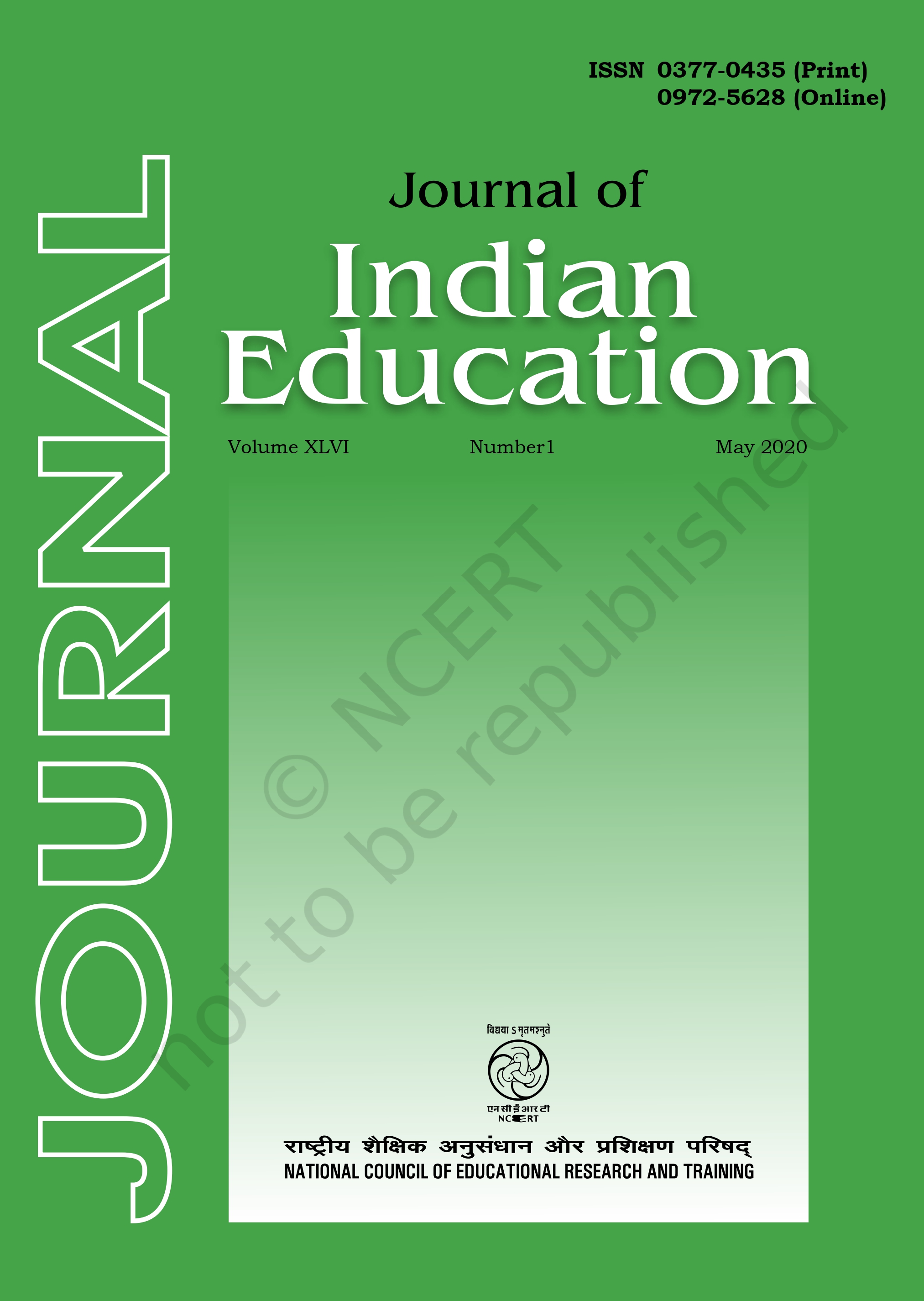Published 2020-05-31
How to Cite
Abstract
The rationale of this research was to explore the effect of experiential learning programme and traditional teaching on self-efficacy in the subject of science. The sample consisted of 90 students from Class IX. The sample selection was done on the basis of academic scores obtained by students in the subject of science in Class VIII. The study was experimental in nature. Students were randomly and equally segregated into experimental and control group respectively. Self constructed Science Self-efficacy Scale was executed before and after the experiment. Reliability of the Science Self-efficacy Scale was measured by Cronbach Alpha and split half method which was found to be 0.86 and 0.76 respectively. The control group was taught by traditional teaching and experimental group was taught by experiential learning programme. The experiential learning programme was developed on the basis of four step stages of Kolb’s model. The intervention programme was performed for sixty days. The obtained data was analysed by employing‘t’ test. The major findings of the study confirmed that experiential learning model is more effective for enhancing self-efficacy of students in the subject of science. The students were handling equipments and doing experiments by themselves. So, directly or indirectly it is helpful in enhancing the self-confidence of students. The research has its applications for in-service or pre-service teachers, parents, policy makers of curriculum framework and students of secondary schools.

